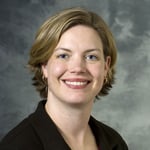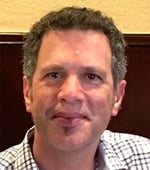.png?width=278&name=Boost%20your%20immunity.%20(2).png)
This interactive, web-based course helps providers learn how to assess and treat tobacco dependence in tobacco users with co-occurring psychiatric and/or addictive disorders.
The course is 3 hours in length, and is broken down into separate modules.
Educational Objectives
Following completion of this educational activity, learners should be able to:
-
Describe population-based trends of tobacco use among smokers with co-occurring mental health and/or substance use disorders.
-
Discuss the factors in mental health and addiction treatment settings that have served to maintain tobacco use in populations with mental health and/or substance use disorders.
-
Identify and implement evidence-based treatment for treating tobacco dependence.
Credits Available
- AMA PRA Category 1 Credit™
- APA
Don't Need CEUs? You can still take the course!
Click here to access the material:
https://rise.articulate.com/share/GQKU6man-3CERYggXjQDpOcrmvD7DNe5








 The
The 
 Dr. Piper is a licensed clinical psychologist and the Associate Director of Research at UW-Center for Tobacco Research and Intervention and an Assistant Professor in the University of Wisconsin Department of Medicine. Her research focuses on understanding and treating tobacco dependence, with an additional interest in different populations of smokers who have more difficulty quitting, such as women and smokers with mental illness. Dr. Piper began her research on tobacco treatment in 1999 when she collaborated on the Public Health Service Guideline: Treating Tobacco Use and Dependence that was published in 2000. She then served as the Project Scientist for the 2008 PHS Guideline update. In 2014 she received the Russell-Jarvik Young Investigator Award for her contributions to the field from the Society for Research on Nicotine and Tobacco.
Dr. Piper is a licensed clinical psychologist and the Associate Director of Research at UW-Center for Tobacco Research and Intervention and an Assistant Professor in the University of Wisconsin Department of Medicine. Her research focuses on understanding and treating tobacco dependence, with an additional interest in different populations of smokers who have more difficulty quitting, such as women and smokers with mental illness. Dr. Piper began her research on tobacco treatment in 1999 when she collaborated on the Public Health Service Guideline: Treating Tobacco Use and Dependence that was published in 2000. She then served as the Project Scientist for the 2008 PHS Guideline update. In 2014 she received the Russell-Jarvik Young Investigator Award for her contributions to the field from the Society for Research on Nicotine and Tobacco.

 Dr. Tedeschi is a licensed psychologist (#PSY 14241) at the University of California-San Diego School of Medicine, Moores Cancer Center. He has worked there since 1994 as the Clinical Director of the California Smokers' Helpline and the Center for Tobacco Cessation. At the Helpline he is responsible for clinical supervision, counseling protocol development, counselor training, and continuing education. At the Center he provides technical assistance and training for medical and behavioral health professionals on tobacco cessation interventions. Dr. Tedeschi also has several years of previous clinical experience providing psychotherapy for individuals, couples and groups in settings including community mental health, psychiatric in-patient, and university counseling centers. He teaches graduate courses in counseling part time and maintains a small practice in consulting psychology. Dr. Tedeschi holds a Ph.D. in counseling psychology from the University of Missouri, Kansas City; an M.A. in counseling psychology from Boston College; and a B.A. in psychology from Kutztown University of Pennsylvania.
Dr. Tedeschi is a licensed psychologist (#PSY 14241) at the University of California-San Diego School of Medicine, Moores Cancer Center. He has worked there since 1994 as the Clinical Director of the California Smokers' Helpline and the Center for Tobacco Cessation. At the Helpline he is responsible for clinical supervision, counseling protocol development, counselor training, and continuing education. At the Center he provides technical assistance and training for medical and behavioral health professionals on tobacco cessation interventions. Dr. Tedeschi also has several years of previous clinical experience providing psychotherapy for individuals, couples and groups in settings including community mental health, psychiatric in-patient, and university counseling centers. He teaches graduate courses in counseling part time and maintains a small practice in consulting psychology. Dr. Tedeschi holds a Ph.D. in counseling psychology from the University of Missouri, Kansas City; an M.A. in counseling psychology from Boston College; and a B.A. in psychology from Kutztown University of Pennsylvania.